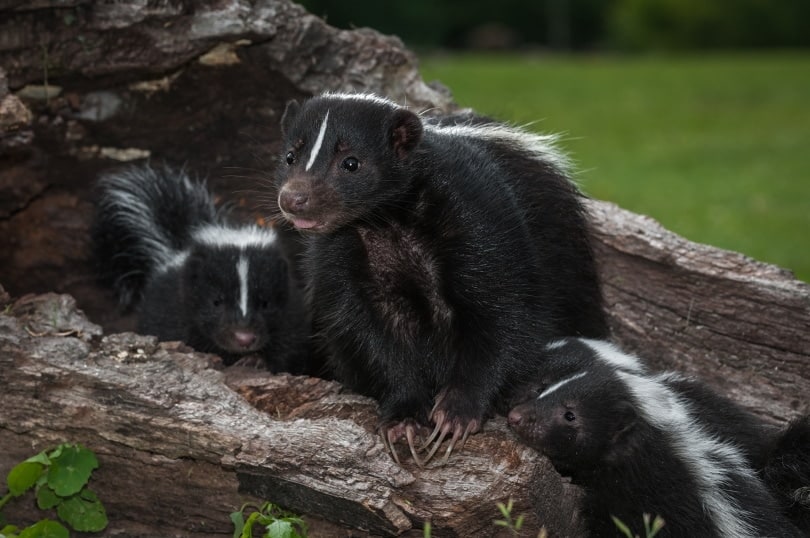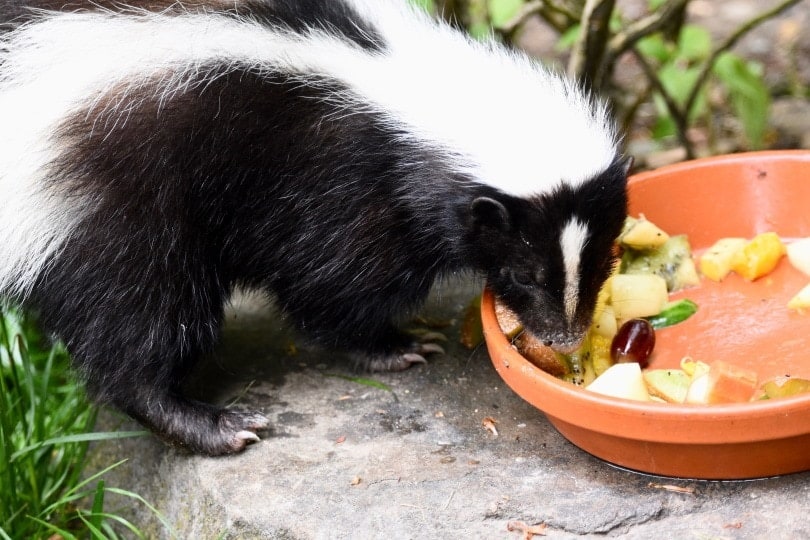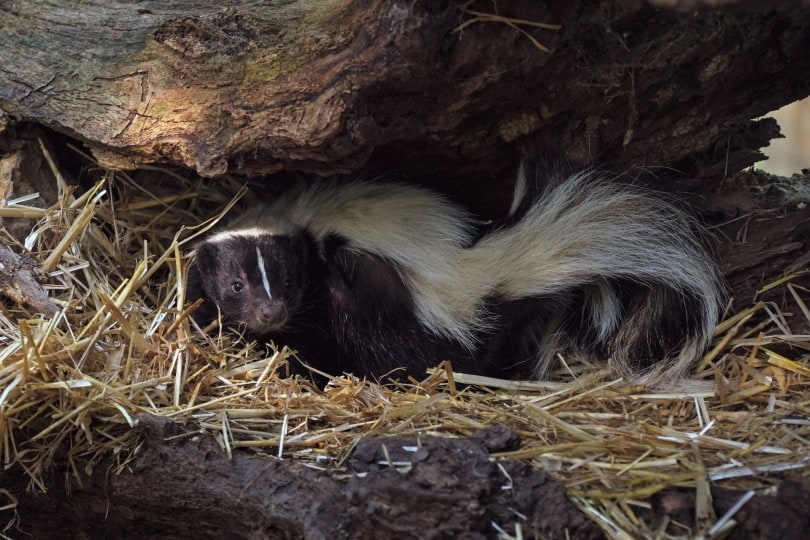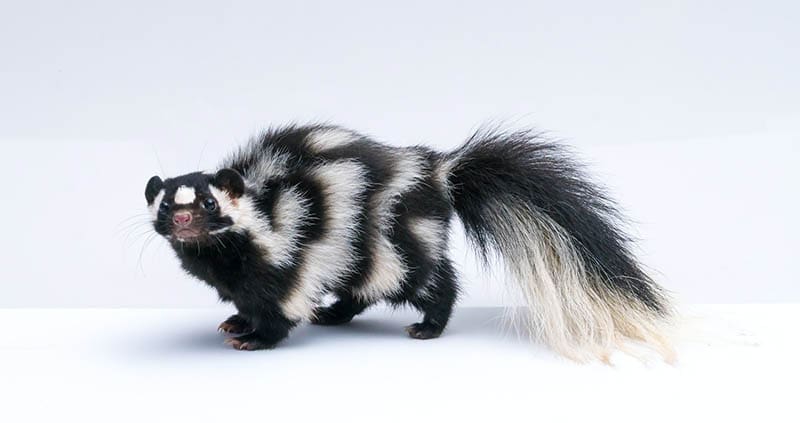Skunks are undoubtedly best known for the foul odor they spray, and most people won’t get close enough to these adorable little critters to hear any noise they’d have to make. Skunks may share some similar traits with cats when kept as pets, but they do not purr.
That doesn’t mean they don’t have their very own arsenal of noises though. Skunks make a wide variety of noises to communicate how they are feeling. Keep reading to learn more about these unique and adorable creatures that exist both as wild animals and exotic pets.

What Noises Do Skunks Make?
So, you can’t expect to hear a purr out of a skunk but don’t worry, they have plenty of other noises to make up for it. You are likely not going to hear a wild skunk, as they are elusive creatures that tend to keep far from humans.
When they are foraging about during the night, they are typically pretty quiet anyway. Their vocalizations are most often observed by those that keep skunks as pets.
1. Chirps
Play Chirps: Skunks will emit unique playful chirps when they are happy and excitable. This usually occurs during play whether it is with their human or another animal they are romping around and wrestling with.
Angry Chirps: Chirps don’t always indicate happiness in skunks, they will also give out an angry chirp when they become frustrated. They may also begin stomping their feet or posing in a more aggressive stance to let you know they aren’t happy. This is usually when they are feeling vulnerable or are having to do something they don’t like.
2. Growl
When skunks become defensive or upset, you may hear them emit a low growl along with those angry chirps. As mentioned, it’s common behavior for skunks to stomp their feet when they become upset, so all of these are an indicator that something just isn’t right in their world.

3. Hiss
One of the sounds a skunk does share with a cat is the hiss. This is yet another noise made out of frustration. Cats and skunks hiss for very similar reasons, they are either scared or upset and wish to ward off whatever they don’t want around them.
4. Lip Smacking
Lip-smacking may not be an audible sound a skunk is making to communicate but it is a sound, nonetheless. Lip-smacking is an adorable behavior observed in pet skunks that indicates they are very content and comfortable. Many skunks will curl up on their owner’s lap and begin lip-smacking as they lay down for a nap.


The 7 Interesting Facts About Skunks
1. There Are Legalities Behind Pet Skunks
Pet skunks are very popular in the exotic pet trade. Of course, they must have their scent glands removed to be kept as house pets to avoid spraying. They will not be legal to own everywhere, so you must check with your state and local laws before ever considering a pet skunk. You may even be required to obtain special permits in certain areas.
2. Pet Skunks Aren’t for Everyone
Skunks are wild animals that have more complex and unique care requirements and they have certain behaviors that your average house pets lack. They may use the litter box but unlike dogs and cats, they don’t have many years of domestication in their history.
Skunks are sociable, stubborn, and very curious. While they can be very loving and enjoyable pets that can even get along well with other pets, they are also known for getting into things and can be quite destructive if they don’t get enough mental and physical stimulation.

3. Skunks Can Spray Up to 10 Feet
This may be a bit unsettling for those that find themselves in the path of a wild skunk, but the sulfuric spray that is emitted from the scent glands on their rear end can shoot up to a 10-foot range. They only spray when they feel threatened, so if you’ve happened upon a skunk, be calm and quiet and do not rush toward it. It’s best to just quietly back away and leave them to their business.
4. A Skunk’s Spray Odor Can Be Detected Up to 1.5 Miles Away
Not only can a skunk spray up to 10 feet away from them, but that odor emitted can smell from a far-off distance, up to 1.5 miles away from where it occurred. The good news about spraying is they will do a warning dance before they let loose.

5. Skunks Are Excellent Diggers
Skunks spend a lot of time foraging for food like earthworms and grubs, so they have strong forefeet and very long nails that allow them to dig easily into the soil in search of their next meal. They also burrow and often damage the foundations of structures by digging underneath to find a place to rest. This is why they are considered such nuisances in urban and suburban areas.
6. Skunks Are Immune to Snake Venom
One of the very few species of animal that have a strong immunity to snake venom, a skunk can survive envenomation 100 times stronger than would be enough to kill a household pet. They are even known to eat snakes, including venomous species like rattlesnakes, copperheads, and more.
7. They Are Great Rodent Control
Another similarity that skunks share with cats is their ability to keep rodents under control. Skunks aren’t picky eaters and will happily feed on a variety of pesky rodents that like to gravitate toward human structures.

Conclusion
Skunks are incredible little creatures that make a wide range of unique noises to express their feelings. Unlike cats, they do not purr but they will chirp and lip smack to show how happy they are. Skunks can be kept legally as house pets in certain states but remain illegal in many areas. Those that are familiar with domesticated skunks are much more likely to hear the variety of noises they make, as they are typically very solitary and quiet in the wild, especially if they venture near humans.
Featured Image Credit: Bryan Padron, Unsplash
